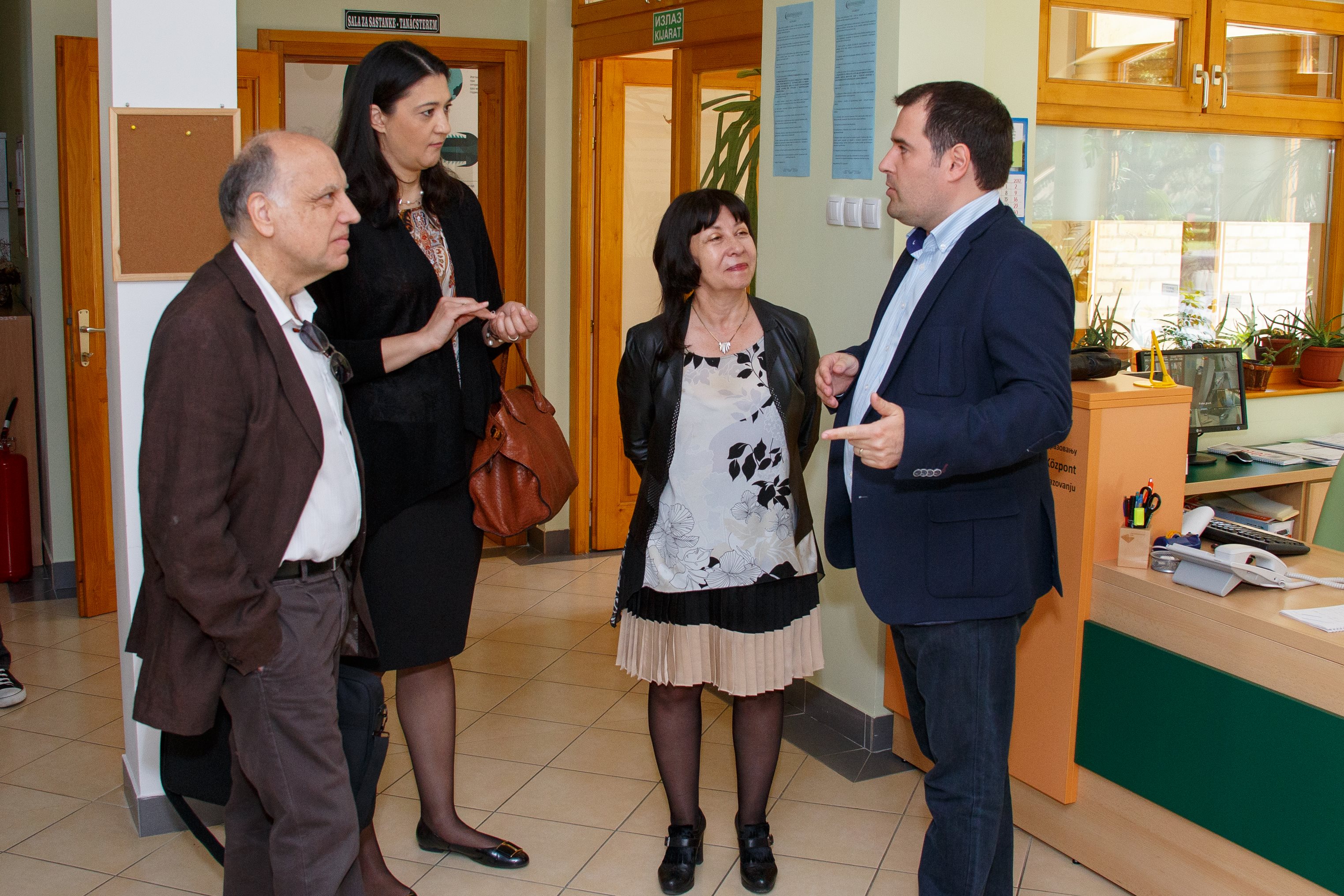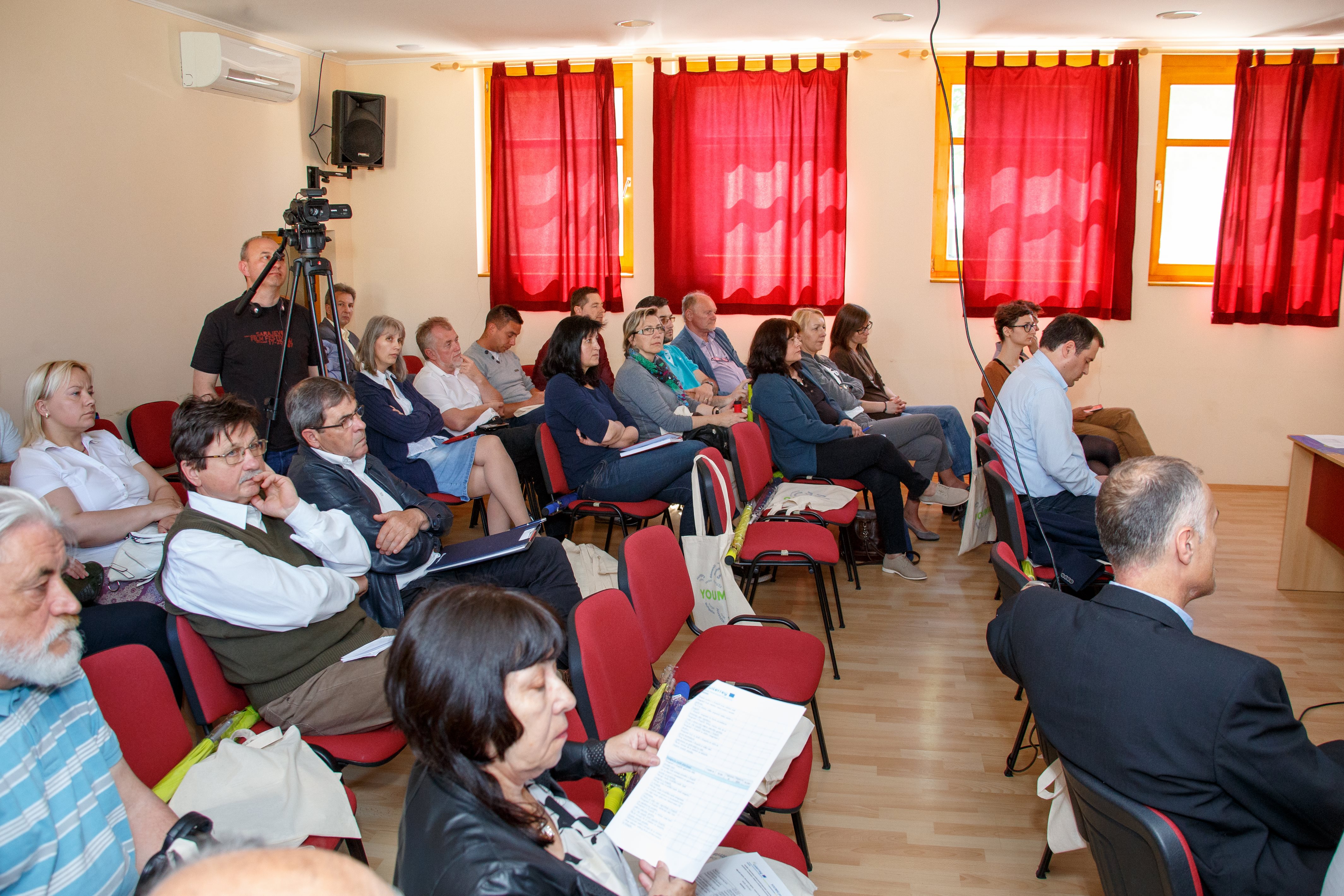YOUMIG - KANJIŽA MEETS MIGRATION AT LOCAL FORUM
12-07-2017

Kanjiža is a small town in Serbia, on the very border with Hungary. Its great location makes it a “gateway to Europe”, but at the same time, the vicinity of the EU makes it appealing for young people to see it as a springboard to leave for Europe as well. And very often - not to come back. That is why participation in YOUMIG is invaluable to us.
Kanjiža Municipality, as a YOUMIG partner, held its own kick-off event on May 19, 2017 at the town’s municipality.

Local radio, television and online press were present at the press conference at the start of the day. The media asked to clarify the project’s background and aims, asked when first results could be seen, how they would be used, and what their impact was for the municipality. They also asked general questions about migration and how numbers of emigrants can be measured with precision. Answers were given both in Hungarian and Serbian to reach local communities.
Introducing the project, Robert Fejstamer, the mayor of Kanjiža, asked participants to take active part in the discussions during the day, as the findings of YOUMIG research would help them with their work and in decision and policy-making. “Trying to meliorate the effects of migration today is important for the future of the municipality, as these effects will be tangible in 20 years’ time, too,” he said.
The main aims and conceptual overview of YOUMIG were discussed by Jelena Predojević-Despić, from the Institute of Social Sciences (ISS). She pointed out the necessity of assisting municipalities to better understand and face new challenges of an intensive migration of youth, as well as to utilise the developmental potential of youth migration and mobility. The challenges of migration monitoring, especially of migration flows, in the population of the municipality of Kanjiža were addressed by Ljiljana Djordjević, from the Statistical Office of the Republic of Serbia (SORS).

The presentations raised questions among the invited representatives (the mayor, members of the municipal council, members of local communities, school principals and teachers, social work leaders, police, local youth experts) of the types of migration present in the municipality, their significance for the population, related local experiences and whether there are types of migration which can be used as motors for local development on any administrative level. Also mentioned were the possible ways of registering data about youth who go abroad. It was also concluded that there must be cooperation between various sectors at a national level, and comprehensive programs which take into account most of the local specifics. It is the only way initiatives on the local level can be fruitful, the director of the Centre for Social Work emphasised.
Students abroad, as possible return migrants, need to be informed about what they can realistically expect from moving back home, the mayor said, adding that social media and contacts must not be regarded as a trustworthy source of information on the situation either in the receiving or sending community.
 A local primary school psychologist told the forum that during this year’s school admissions, fewer children enrolled in the first year and they estimate that five out of 50 children will leave during the school year. The school forecasts that by September the number of classes at the school will drop from the current 70 to 62 due to a drop in the number of pupils. Generally higher-skilled people leave, which creates job shortages in those positions, for example many teachers leave to gain further education in Hungary, the psychologist said.
A local primary school psychologist told the forum that during this year’s school admissions, fewer children enrolled in the first year and they estimate that five out of 50 children will leave during the school year. The school forecasts that by September the number of classes at the school will drop from the current 70 to 62 due to a drop in the number of pupils. Generally higher-skilled people leave, which creates job shortages in those positions, for example many teachers leave to gain further education in Hungary, the psychologist said.
The last part of the day included training for municipal staff focusing on how to find data relevant for youth migration in existing databases and publications available on the SORS website. A brief discussion on the main issues followed. Participants all agreed that one of the main challenges is economic empowerment – government should first stabilise the economy. The problem is that young people today do not have a clear picture of the future in Serbia and they find it difficult to start their own business because they do not have the initial capital and expenditures are high, they concluded.
Kanjiža’s local migration event helped raise important questions: Do young people with families, people who have something at stake on a personal level, see their future in Kanjiza? The migration processes cannot be stopped by Serbia or by Eastern Europe, but the question is whether there are expert answers and solutions. One conclusion of the forum was that politicians at different levels need to work together, listen to each other’s ideas, in order to help the municipality’s development.
